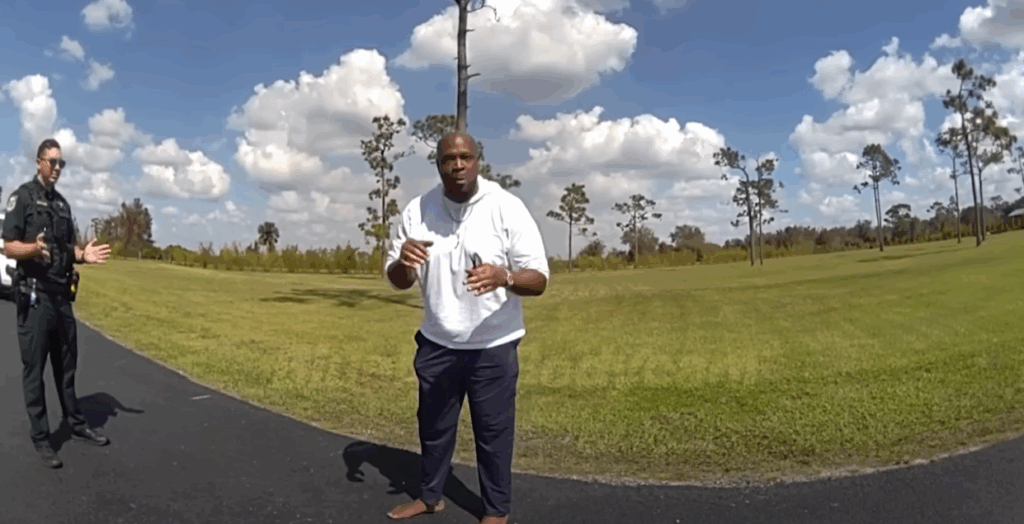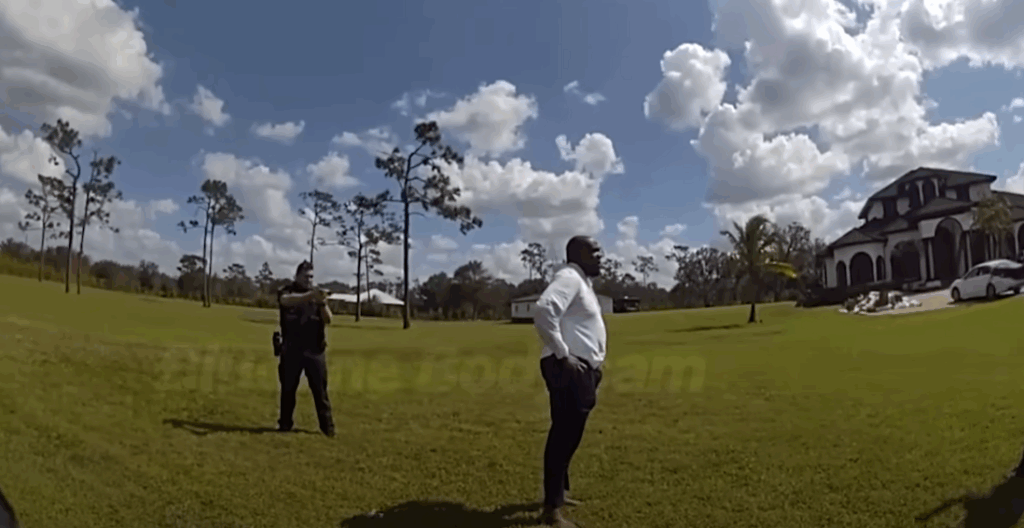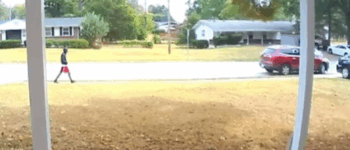Florida — What began as a routine trespass call quickly escalated into a tense confrontation, ending with a man shot dead and a deputy in tears. The incident highlights the split-second decisions law enforcement officers face in volatile situations — and why this is the kind of arrest every cop dreads.

📞 A Routine Call Turns Complicated
Deputies from the Charlotte County Sheriff’s Office were dispatched to a rural property after receiving a complaint of trespassing. Upon arrival, they encountered a man who identified himself as Ben Day. He calmly explained that another man had entered his home without permission and had damaged his door, which he described as “destruction of property.”
He told deputies that the guest had been living in a separate area of the property for several months. At first glance, this appeared to be a civil dispute between two individuals rather than a criminal matter. The officers spoke with him in a composed manner, asking routine questions:
- “Do you have any weapons?”
- “Where is the other man currently staying?”
- “How long has he been on the property?”
The man replied with unusual phrases:
“I don’t use guns. I am the weapon.”
Despite the odd remark, the deputies determined the situation was a civil matter, not criminal, and began preparing to leave. But before clearing the call, they ran a background check — and that changed everything.
🚨 A Name That Changes the Entire Situation
When deputies entered the name “Ben Day” into their system, they couldn’t find a match. Further checks revealed that the man may have provided a false identity. His real name, they discovered, was Elroy Clark — and he had an active warrant for trespassing, a relatively minor charge.
When confronted with this discovery, Clark denied everything. He repeatedly stated:
“That’s not my name. I am Ben Day. I’m on my property. I’m not operating commerce.”
The language he used is commonly associated with the sovereign citizen movement — a loose network of individuals who reject government authority and often refuse to comply with law enforcement instructions.
As deputies pressed for his real identity, Clark grew more agitated. He refused to remove his glasses, denied the warrant existed, and declared that officers had no jurisdiction on his “estate.”
The situation was now teetering between civil disagreement and active resistance.
⚡ Escalation: Taser, Bean Bags, and a Deadly Standoff
Deputies gave Clark multiple lawful orders to put his hands behind his back so they could detain him on the warrant. He refused every time.
They warned him that a taser would be used if he did not comply. Clark, standing firm on his property, shouted back:
“You’re going to tase me on my land. Go ahead. Do what you gotta do. But don’t touch me.”
When the taser was finally deployed, Clark remained on his feet, continuing to argue and resist. Deputies then called for backup. A third deputy arrived, equipped with a less-lethal bean bag shotgun, attempting to gain control without lethal force.
The verbal standoff stretched for several intense minutes. Deputies pleaded with Clark to get on the ground, emphasizing that no one wanted to hurt him. But Clark refused, maintaining his claim that he was not Elroy Clark and insisting they leave his property.
Then, in a split second, Clark charged at a deputy. It was the moment every officer fears: a confrontation turning physical, with no time left to talk. One deputy immediately drew his firearm and fired multiple rounds.
“Shots fired! Shots fired!” echoed over the radio.
Clark was struck multiple times and fell to the ground. Despite efforts to control the situation, his injuries proved fatal.
In total, 14 rounds were fired by the primary deputy, and 1 round by another deputy. Based on available footage, the second deputy’s shot did not hit Clark.

🧠 The Aftermath: A Deputy’s Panic Attack
Moments after the shooting, the deputy who fired the fatal shots was seen on bodycam hyperventilating, his voice breaking as he repeatedly said:
“I didn’t want to do that. I didn’t want to do that.”
Other deputies rushed to comfort him, urging him to breathe slowly and sit in a patrol car to recover. This emotional response underscores the psychological toll these incidents take — even when the use of force is deemed legally justified.
This is precisely the type of situation officers fear the most:
- A civil call that unexpectedly becomes violent.
- A resistant suspect who denies identity and jurisdiction.
- A split-second decision that determines life or death.
🧾 What Investigators Found Next
While processing the scene, deputies inspected the barn-like structure where Clark’s guest, Troy Johnson, had been staying. Inside, they discovered:
- 384 marijuana plants,
- A shotgun,
- And various paraphernalia associated with drug manufacturing.
Johnson was arrested and later identified himself as “Sovereign Citizen Emperor Troy Bay.” He claimed that neither state nor federal courts had jurisdiction over him — another hallmark of the sovereign citizen ideology.
Johnson now faces multiple felony charges, including:
- Possession of a firearm by a convicted felon,
- Marijuana manufacturing and possession with intent to distribute,
- Failure to register as a felon.
His court appearance is scheduled for July.
⚖️ Department Response and Ongoing Investigations
The Charlotte County Sheriff’s Office stated that the deputy’s actions were consistent with department policy. Both deputies who fired their weapons were placed on paid administrative leave, a standard procedure in shootings, while the Florida Department of Law Enforcement (FDLE) and the State Attorney’s Office conduct independent investigations.
Whether criminal charges will be brought against the deputies will depend on the outcome of these investigations, expected later this summer.
Meanwhile, civil rights groups and local community members have called for full transparency, including the release of additional footage and reports, especially concerning how officers handle encounters with self-proclaimed sovereign citizens.
🧠 Why This Case Resonates
This case is more than a tragic confrontation. It’s a chilling reminder of how a seemingly routine arrest can unravel in seconds.
For law enforcement officers, these situations are a nightmare scenario:
- They arrive expecting to mediate a civil dispute.
- They uncover a suspect with a warrant who refuses to comply.
- Ideological resistance escalates into physical confrontation.
- In a fraction of a second, an officer must choose between backing down or using force to protect themselves and others.
For Elroy Clark, his refusal to acknowledge the legal system — and his final charge at a deputy — set in motion a fatal chain of events. For the deputy, that day became a moment that will live with him forever.
📝 Conclusion
The death of Elroy Clark is a sobering illustration of the unpredictability of policing in America. It raises questions about training, communication strategies, and psychological preparedness, especially when dealing with individuals aligned with anti-government movements.
It’s also a tragic human story — one where a civil complaint ended with 14 gunshots, a man dead, and a deputy visibly shattered by the consequences of his split-second choice.
This is the one arrest that every cop fears.


